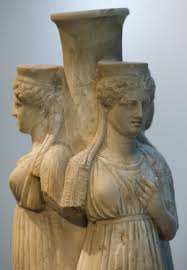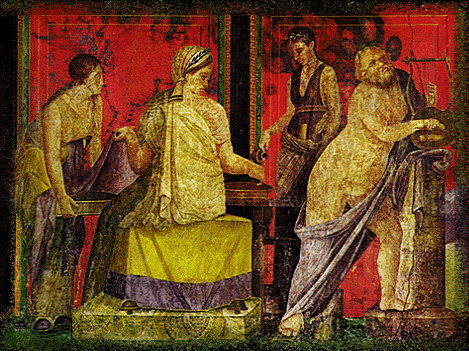 It is vital for modern religions to understand that they are not worshipping the same Gods that their ancestors followed unless they want to replace the mistakes of the past.
It is vital for modern religions to understand that they are not worshipping the same Gods that their ancestors followed unless they want to replace the mistakes of the past.
There is a bit of debate in the blogosphere at the moment about a Hekate post here which appears to be saying another person’s pagan religion was not the same thing as theirs. It then goes on a long list of what the person finds as historical objections to that view. Unfortunately, the original post is full of factual inaccuracies itself which weakens the person’s case, but her arguments can be seen mirrored in many Facebook postings.
“My perception of Hekate is right; yours is wrong.”
The problem with this thinking is that it is based on a mistake which comes from modern fundamentalism – there is a right way and a wrong way to worship a god or goddess.
However, religion has an abysmal history when it comes to what their founders thought and felt. Jesus was a Pharisaic Jew when alive but transformed into saviour of bacon lovers everywhere long after his death. Muhammad, peace be upon him, did not see women as second class citizens but became the quoted source for female circumcisions afterwards. There is nothing remotely like US Bible Belt Christianity before the 19th century when the “Conservative” movement hijacked it.
These religions and their theology are well documented and thought out over centuries and yet none of them reflects the ideas of the founder. What chance have modern pagans got when the accounts of their religion even more sketchy?
Then we must consider the societies which gave birth to those pagan religions. They were not some urban hippy fantasy. I have already upset some by pointing out that ancient religions were not nature cults, but focused on urban issues. Greek and Roman societies were not downtown New York, or LA, in togas. Likewise, their views of Gods was different from what we have now.
The concept dancing with joy as the blood of a white bull showered you with its blood is as alien to your average vegan pagan as the idea of you having a relationship with your chosen deity was during the ancient period.
The relationship most ancient pagans had with their gods was one of fear or attempting to avoid punishment. Gods were something you did not want to mess, and you tried to bribe to let them get what you want. Ritual was something you generally did out of duty, not out of love.
Much of what passes for Paganism is a flowering of the Goddess movement which was started by Margaret Murray in the 20th century. This assumes a pre-historic pagan utopia where women were in charge which was replaced by men bringing in their nasty war gods. It chooses to ignore the truth that women are human and capable of messing things up just as well as men and the fact that the archaeological finds in the so-called “golden age” feature lots of people which were killed by savage combat. (Either the golden age did not exist or women were as violent and brutal as men when in charge).
My point is that modern Pagans can worship what they like, in what ever way they like. They can have relationships with their gods if they must, make elaborate offerings of vegan food, treat Hekate as if she was the mother you never had, and anything that might make an ancient pagan raise their eyebrow. But what modern pagans cannot say is “my version of [insert god or goddess] is right and your version is wrong.”
No one can ever be right.

Comments are closed